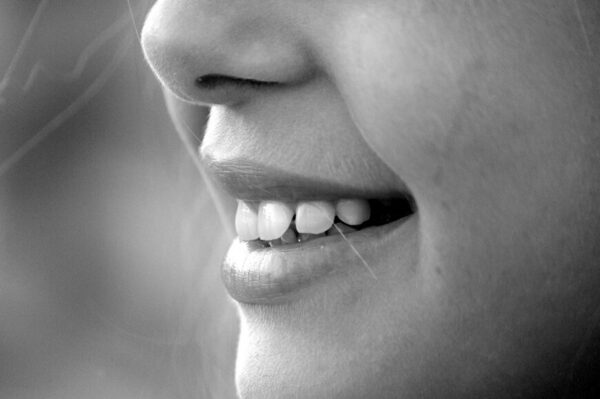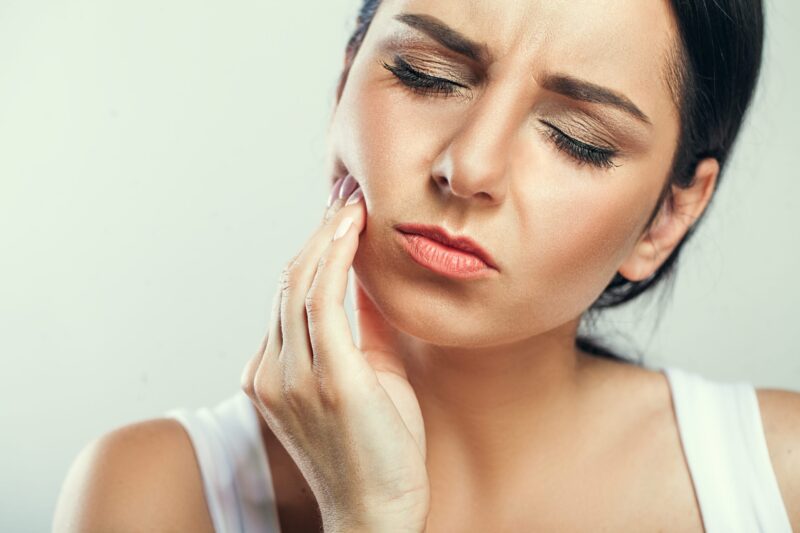Tooth pain is never fun, that much is obvious. However, what isn’t always obvious is the source of your suffering. Feeling pain in your mouth is a common problem, and many people are quick to blame a cavity for their pain. However, before rushing to conclusions it’s important to consider the other possible explanations.
Teeth Sensitivity
If you’re feeling a sharp pain when eating or drinking cold or hot things you may just have sensitive teeth. According to the Academy of General Dentistry, approximately 40 million adults in the United States experience tooth sensitivity. Sensitive teeth can be caused by over-brushing, cracked teeth, teeth grinding, gum disease, tooth whitening and age. Tooth sensitivity is very treatable, no matter what the cause. We recommend using a desensitizing toothpaste, a soft-bristled toothbrush and a fluoride mouthwash. Maintaining a good oral hygiene by brushing twice every day and avoiding acidic foods is also shown to decrease tooth sensitivity.
Gum Infection
A gum infection occurs when germs or bacteria enter the teeth or gum area and multiply to a point where the body cannot fight off the bad bacteria, leading to tooth pain. There are two main types of gum infection: gingivitis and periodontitis. Gingivitis is the mildest form of periodontal disease. It is often caused by inadequate oral hygiene, and it is easily reversible with professional treatment and good oral care. Untreated gingivitis can advance to periodontitis. According to the Center for Disease Control and Prevention, nearly half of the U.S. adult population 30 and older has mild, moderate or severe periodontitis. If not treated, the bones, gum and tissue that support the teeth will be destroyed.
Sinus Infection
With summer in full swing, many Americans suffer from seasonal allergies that are often accompanied with an occasional cold and nasal congestion. Believe it or not, one of the leading causes of tooth pain is sinus infections. A sinus infection is triggered by bacteria and virus infections. For some people, pressure in the maxillary sinus leads to pain in the upper back teeth. It can be on one side or both sides. Pain is usually persistent and recurrent. Sinus infections may clear up on their own without treatment, but some might require medication. If your symptoms last longer than seven to 10 days, make an appointment to see your doctor.
Teeth Grinding or Clenching
Bruxism, or the clenching or grinding of teeth, is a common activity that can occur both during the day and at night. Signs of bruxism can include morning jaw pain, jaw fatigue or stiffness, clicking or popping of the jaw joints, significant tooth wear, tooth pain and enlarged jaw muscles. There are a variety of different approaches to treat this type of pain, including the use of a mouth guard, consciously relaxing the face and jaw throughout the day, not chewing gum or other objects, reducing stress, drinking more water and getting more sleep. We can talk you through the best form of treatment.
Heart Disease
Angina is a form of chest pain that occurs when not enough blood is able to reach the heart. It can be brought on by physical exercise and emotional stress. The symptoms of angina include a squeezing sensation on the chest, increased shortness of breath during exercise, pain in the jaw, teeth, ears and stomach and a constricting sensation in the throat. Certain types of pain to the face or teeth are recognized as a possible symptom of heart disease. Angina is usually not considered a condition in and of itself, but rather symptom of coronary artery disease, which can eventually lead to a heart attack if left untreated.
If you suffer from tooth pain, please be sure to contact us, as you may benefit from professional treatment. Although it’s important to understand your symptoms, self-diagnosis is often incorrect and can lead to further issues. Left untreated, some tooth pain and infections can lead to life-threatening concerns and can spread throughout the body, causing an even greater infection. Having a conversation with your dentist is the first step in finding relief from your pain. By scheduling an appointment, we can discuss the issue further and determine the best method of treatment.



